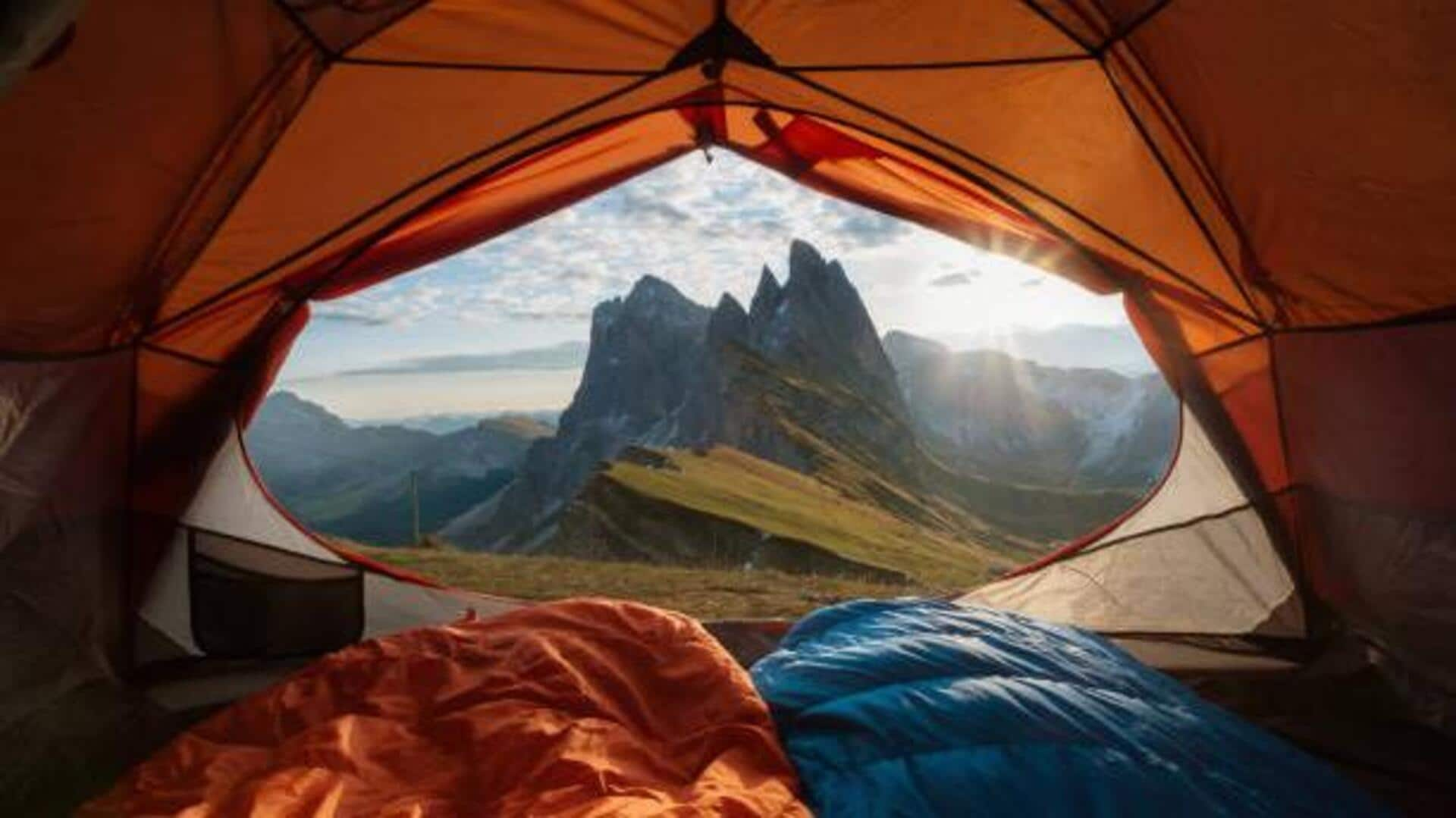
Mountain camping 101: Gear, safety, and more
What's the story
Embarking on your first mountain camping trip can be equally exciting and daunting. However, the key to a successful adventure is preparation and understanding the unique challenges of mountainous terrains. From unpredictable weather to rugged landscapes, being well-prepared ensures you have a safe and fun time. Here are practical tips for first-time mountain campers, focusing on essential gear, safety measures, etc., to make the most of your outdoor adventure.
Essential gear
Choose the right gear
Choosing the right gear is important while mountain camping. Get a good quality tent suitable for mountainous terrain, lightweight but sturdy. A sleeping bag with low-temperature rating is important due to unpredictable weather in higher altitudes. Also, carry layers of clothes made of moisture-wicking material to remain dry and warm. Don't forget tough hiking shoes with good grip to walk through rocky paths safely.
Meal planning
Plan your meals wisely
Proper meal planning is a must when camping in the mountains. Choose light-weight, non-perishable foods that offer adequate energy for the duration of your trip. Pack items like nuts, dried fruits, granola bars, and instant oatmeal which are easy to prepare and consume on-the-go. Always carry enough water or a reliable purification method as natural water sources may not always be safe.
Weather awareness
Understand weather patterns
Mountain weather can be unpredictable, so it's essential to stay updated with local forecasts before heading out each day. Carry a portable weather radio or download mobile apps that provide real-time updates on the weather conditions in your area. Carry rain gear, even if the forecast predicts clear skies, as sudden showers are common at higher elevations.
Navigation skills
Learn basic navigation skills
Familiarize yourself with basic navigation skills before heading into the mountains. The trails may not always be clearly marked or visible due to fog or snow coverages during certain seasons. Carry topographic maps along with a compass as backup tools, even if you plan on using GPS devices (may lose signal amidst dense forests or deep valleys). Practice reading maps beforehand, so you feel confident navigating unfamiliar terrain independently.
Safety precautions
Prioritize safety measures
Safety should always remain paramount while exploring remote areas like mountains where help might take longer than usual to arrive. Inform someone trustworthy about your itinerary, including expected return date/time, before departure. Carry an emergency whistle, flashlight, and first aid kit containing essentials such as band-aids, antiseptic wipes, etc., and know how to use them effectively when needed.